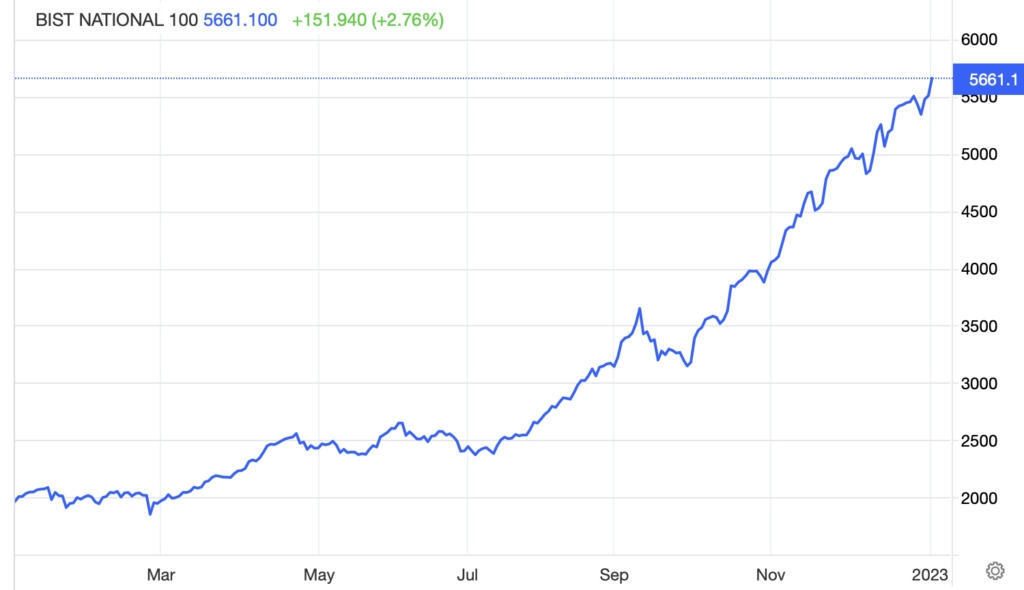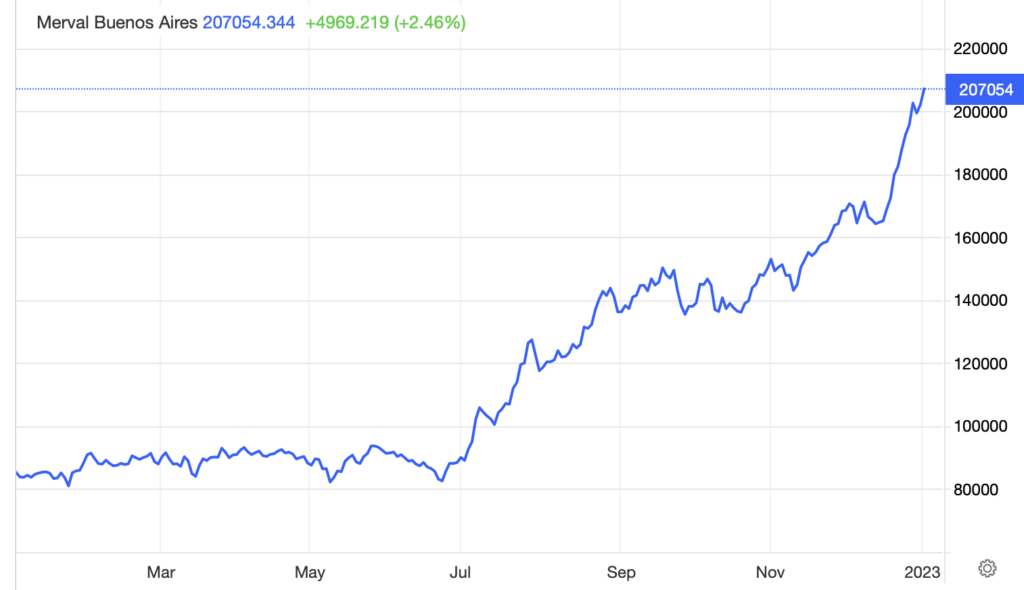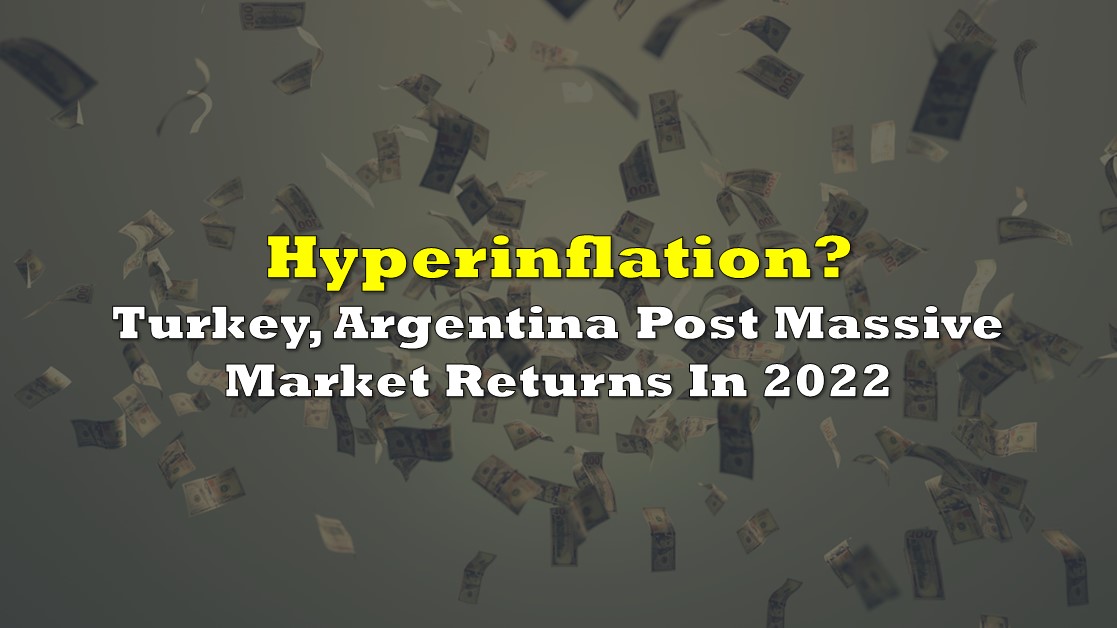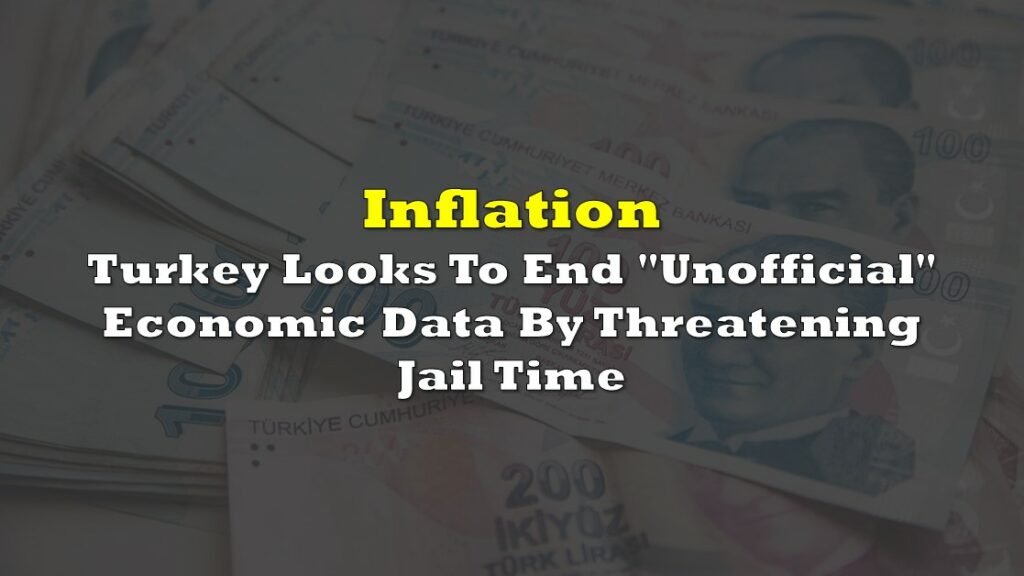North American and European equity markets suffered in 2022 as inflation grew uncomfortably high and central banks raised short-term interest rates to combat rising prices. Such monetary tightening actions probably represent sound economic policy, but from the perspective of stock investors only, one wonders whether allowing inflation to run would have translated into solid market returns. Indeed, hyperinflation in at least two countries did not deter strong investment performance last year.
Specifically, Turkey’s benchmark stock index, the Borsa Istanbul 100, soared around 190% in 2022. Adjusting for a 29% decline in the Turkish lira versus the U.S. dollar, Turkey’s stock market still more than doubled in real terms last year.
Astoundingly, this occurred despite:
1) an annual inflation rate of about 84%; and
2) the Central Bank of Turkey’s indifference to the stratospheric price increases.
That body actually cut overnight rates in steps to 9% from the 14% level that prevailed for about the first seven months of 2022.

The Turkish people seem to have decided that investing in the country’s stock market is a good hedge against inflation. Indeed, Turkey Central Securities Depository data shows that the number of investors in the market has jumped to 3.8 million from 2.4 million at the end of 2021.
Turkey’s economy posted 5% growth in 2022 according to analysts. This represents a solid advance, but not seemingly fast enough to justify the extraordinary 2022 performance of Turkish stocks.
The stock market of Argentina, a country which is also enduring hyperinflation, in this case around 90%, likewise exploded higher, up 142% in 2022. Just as Turkey’s currency did, the Argentina peso plummeted versus the U.S. dollar in 2022, declining about 40%. Still, that means Argentina’s stock market appreciated about 35% on a real basis during the year. As in Turkey, Argentine investors considered stocks to be a good inflation hedge in 2022.

There are two key differences between Argentina’s and Turkey’s financial positions, although from a stock market perspective it did not seem to matter in 2022. First, Argentina’s central bank is much more committed to fighting inflation than Turkey’s. Argentina’s key monetary policy interest rate is set at 75% on an annual basis, about double what it was at the start of 2022, and dramatically higher than Turkey’s 9% level.
Second, Argentina’s GDP is growing at about a 1.7% annualized pace, notably slower than recent increases in Turkey’s economic output. Still, that rate of growth was apparently considered good enough for Argentine stock market investors.
Information for this briefing was found via Edgar and the sources mentioned. The author has no securities or affiliations related to this organization. Not a recommendation to buy or sell. Always do additional research and consult a professional before purchasing a security. The author holds no licenses.









Hyperinflation: Remember, GDP = Money Supply x Velocity
When trying to wrap my head around economics, I like to simplify basic principles down...